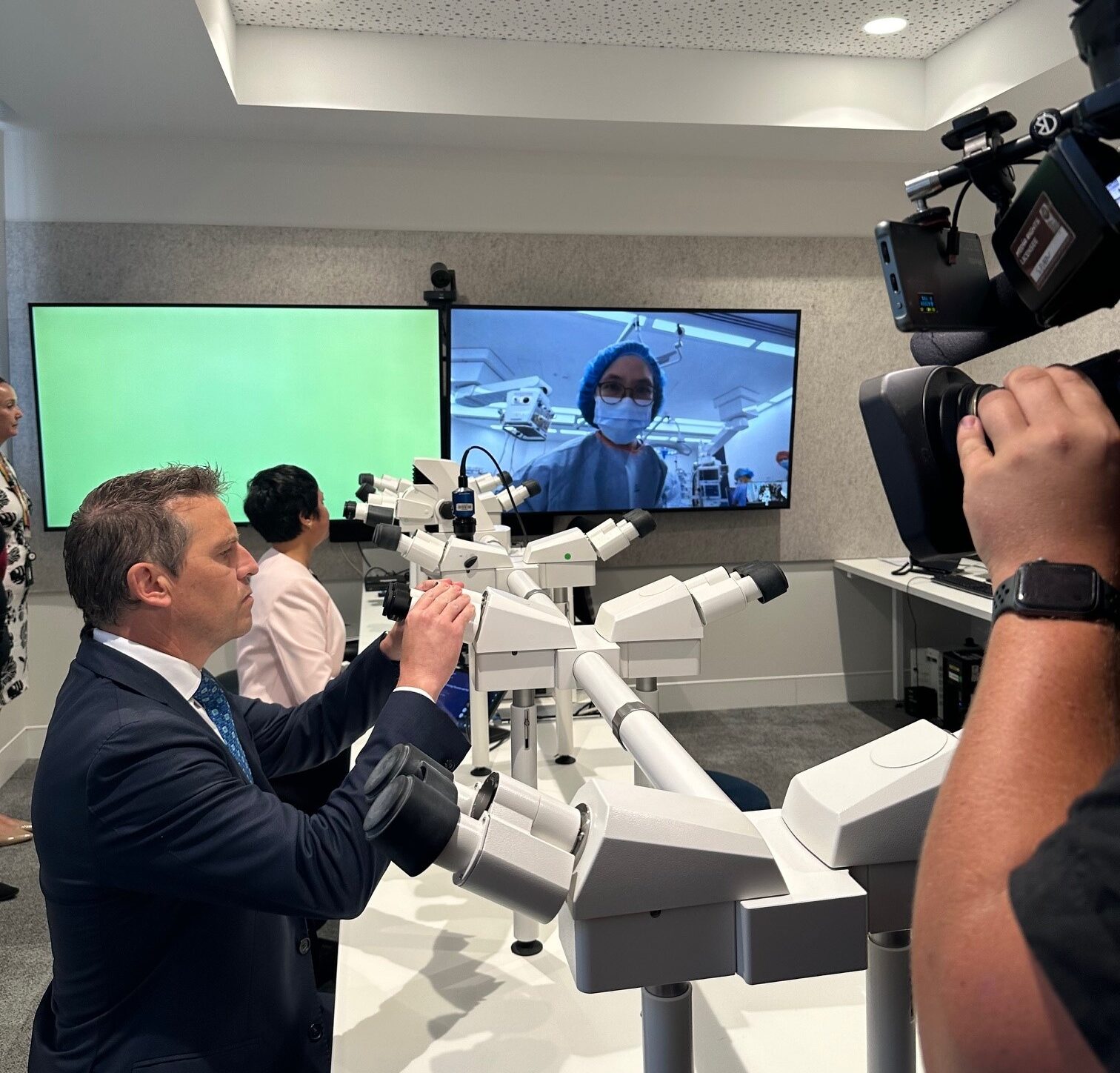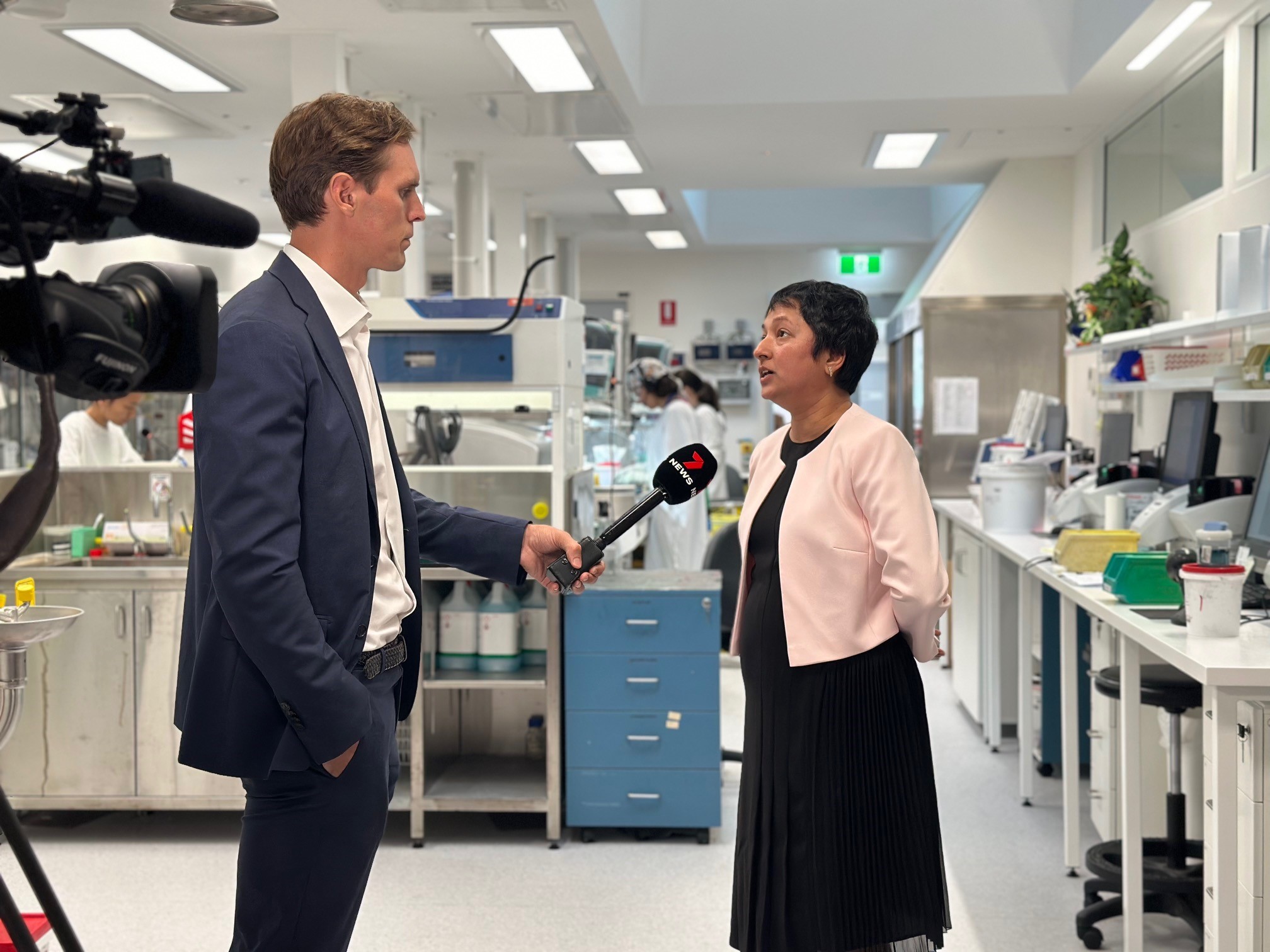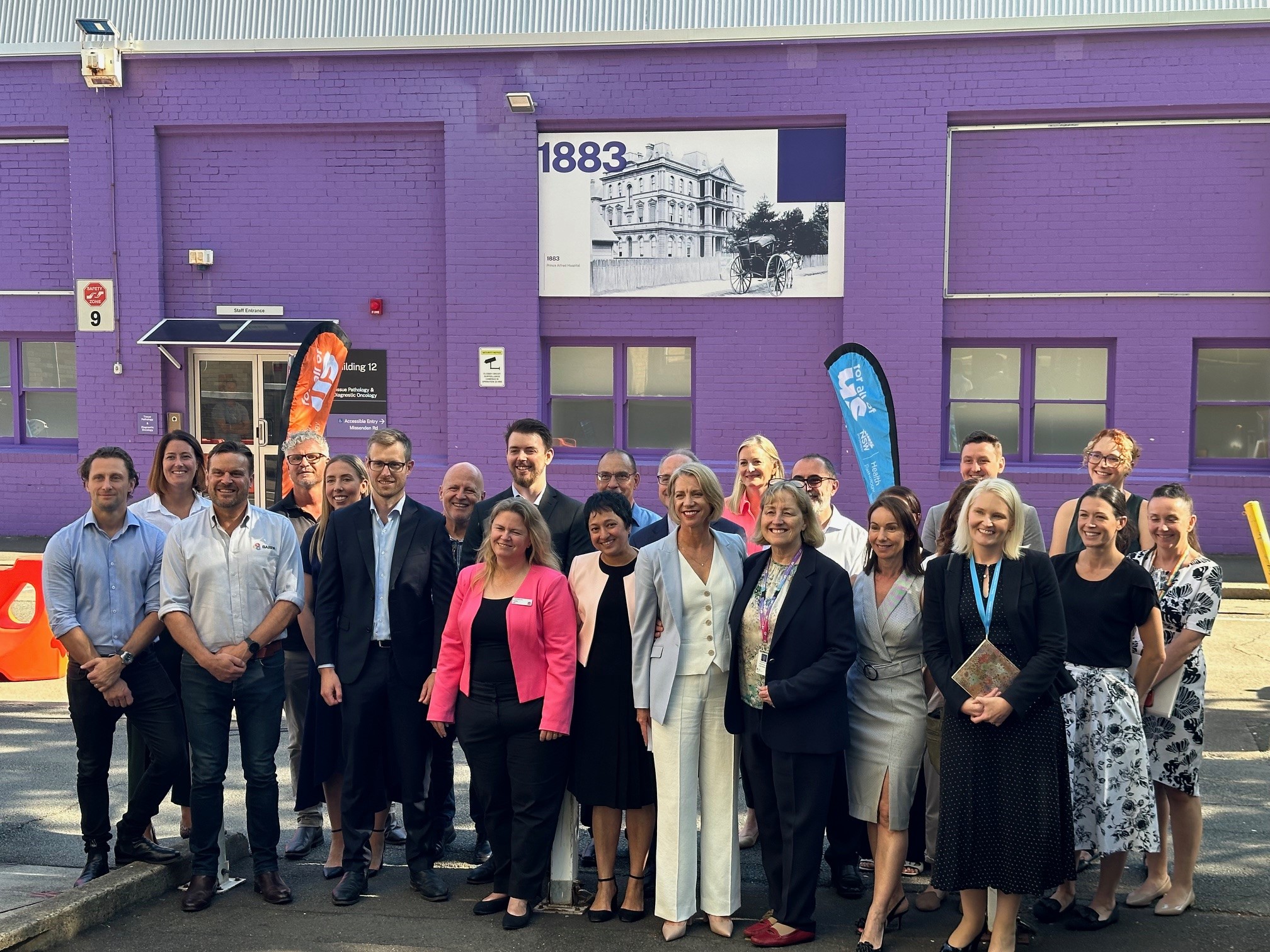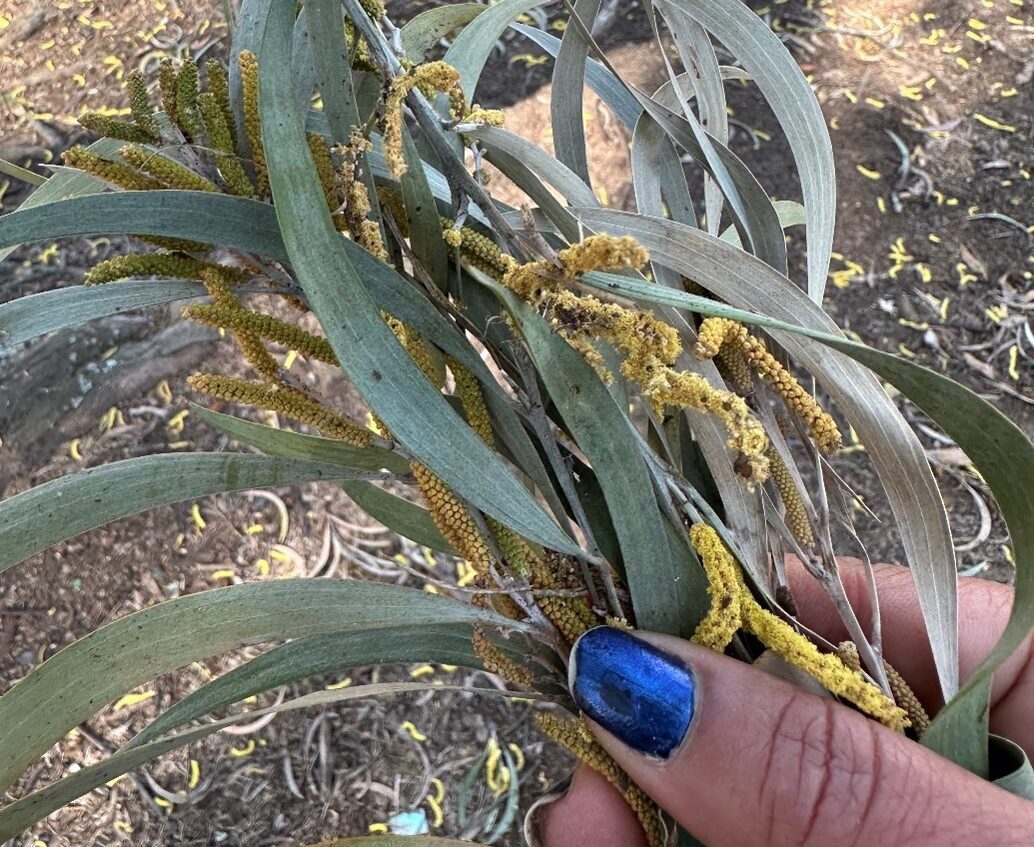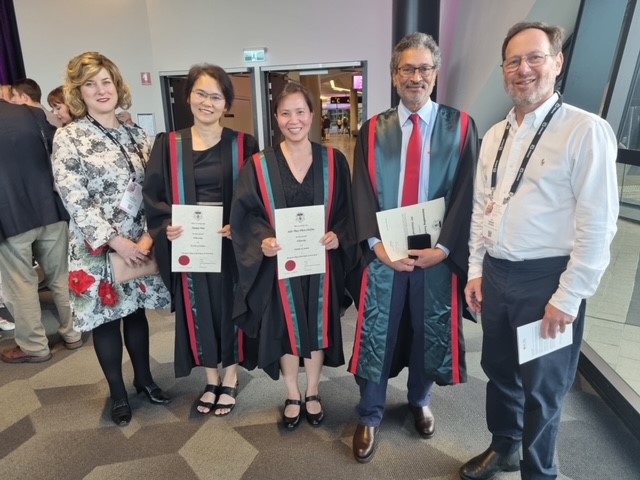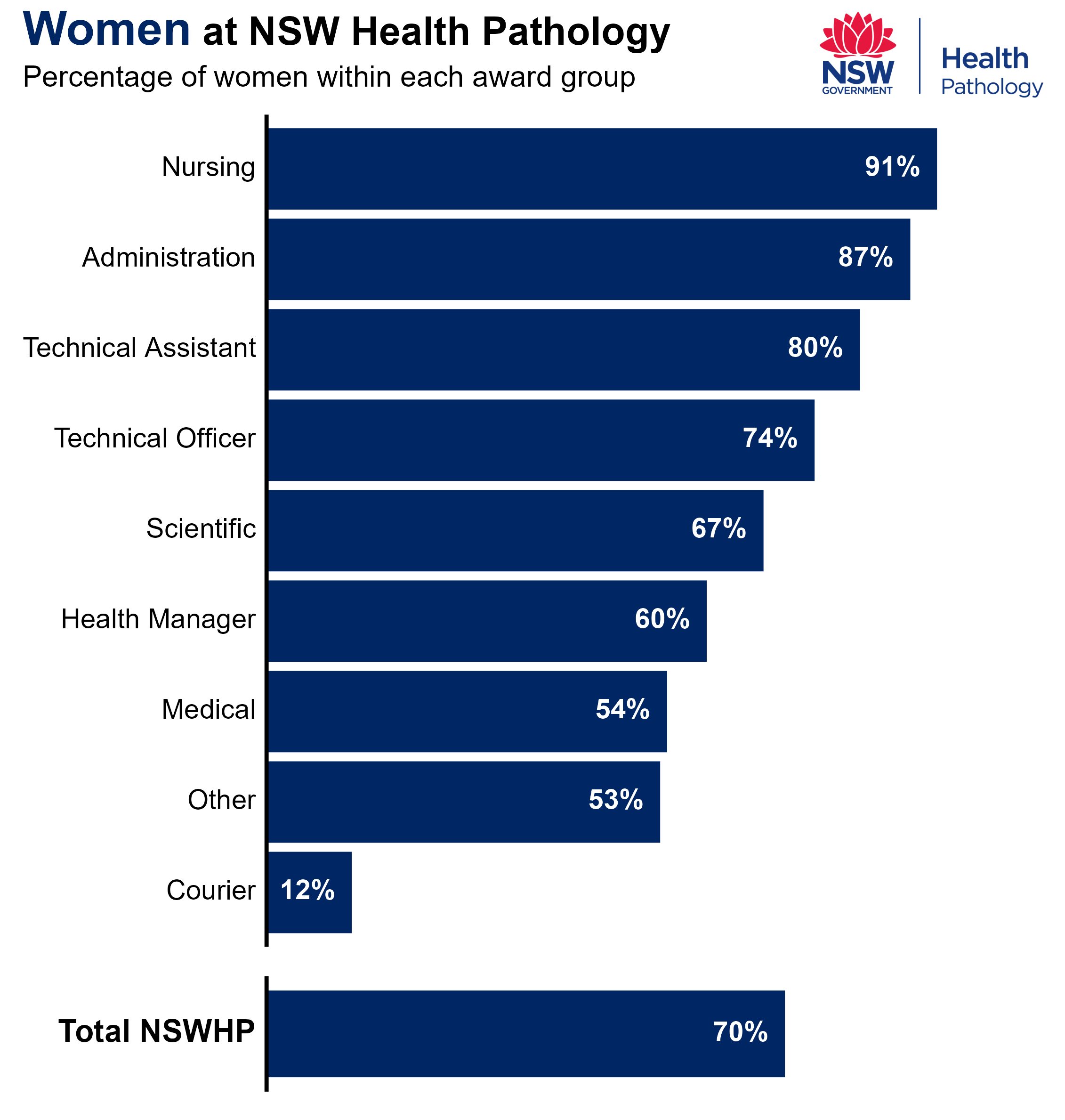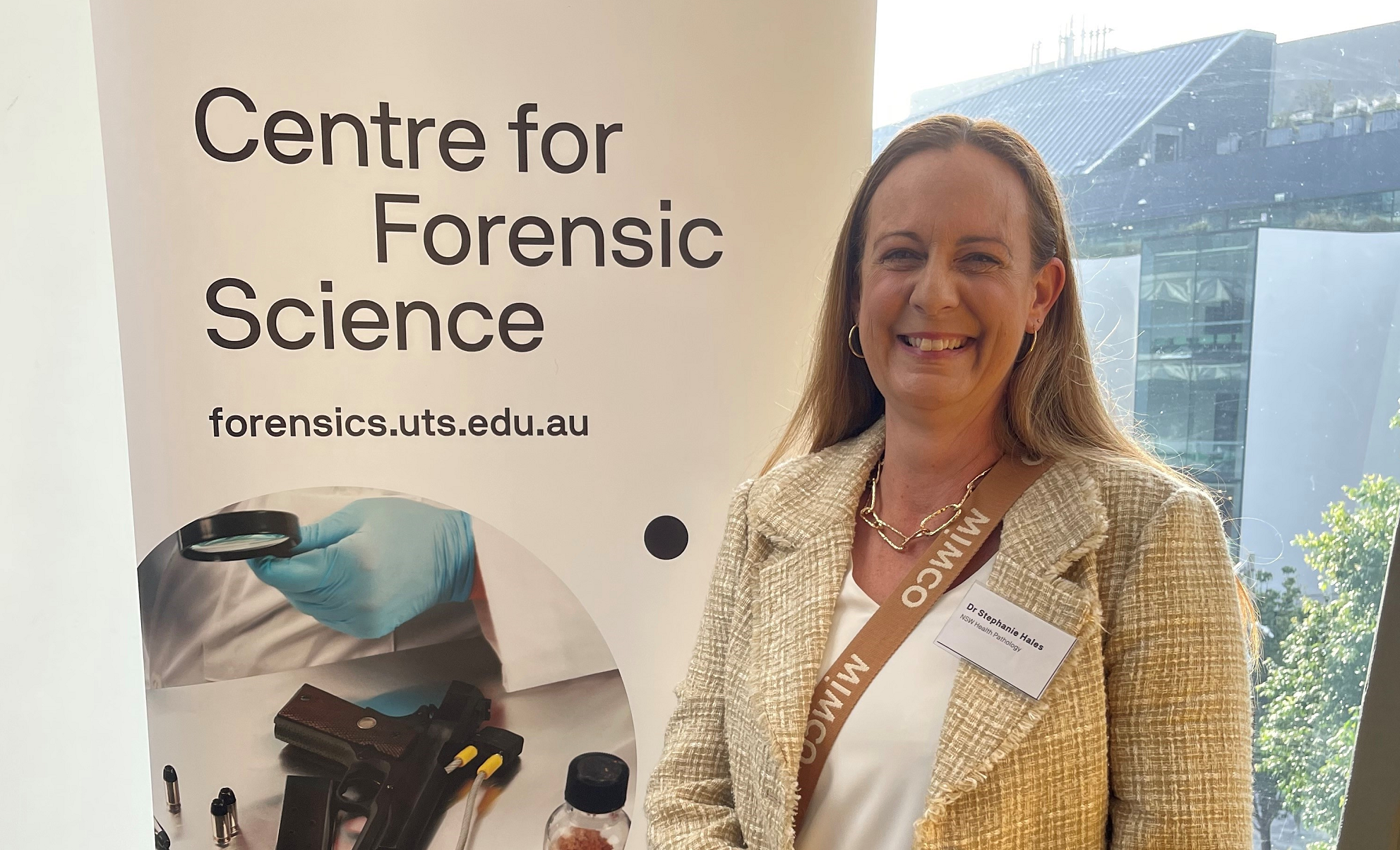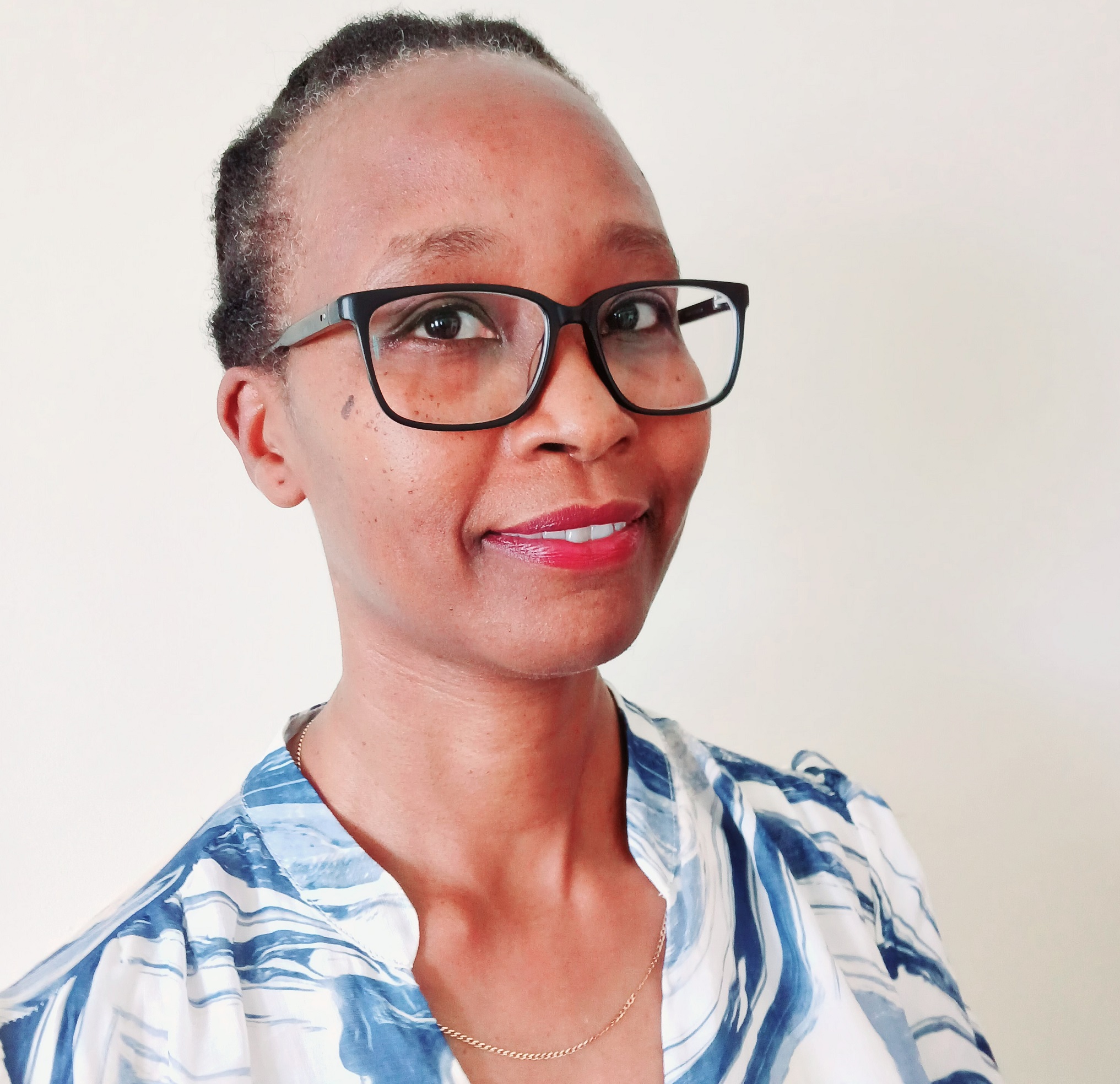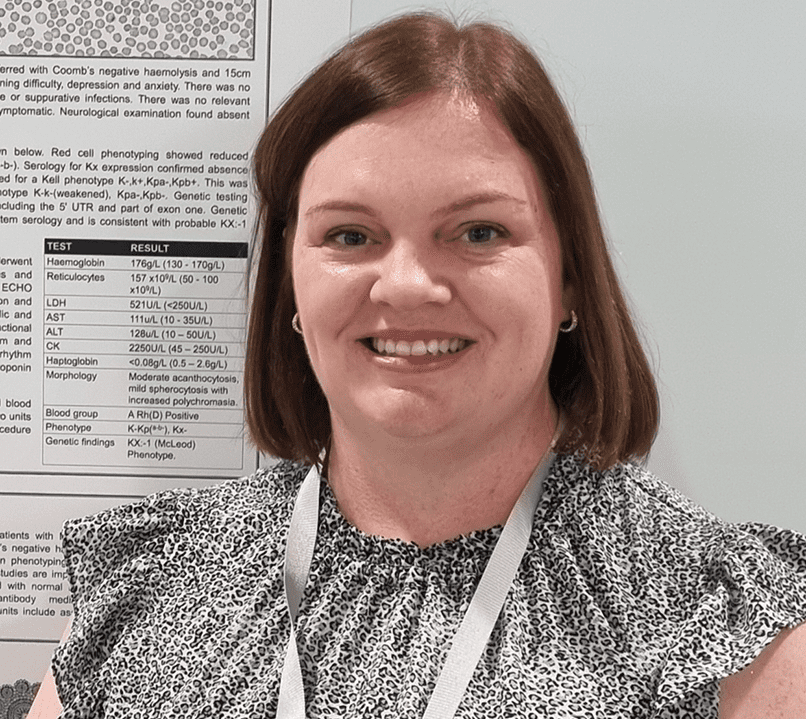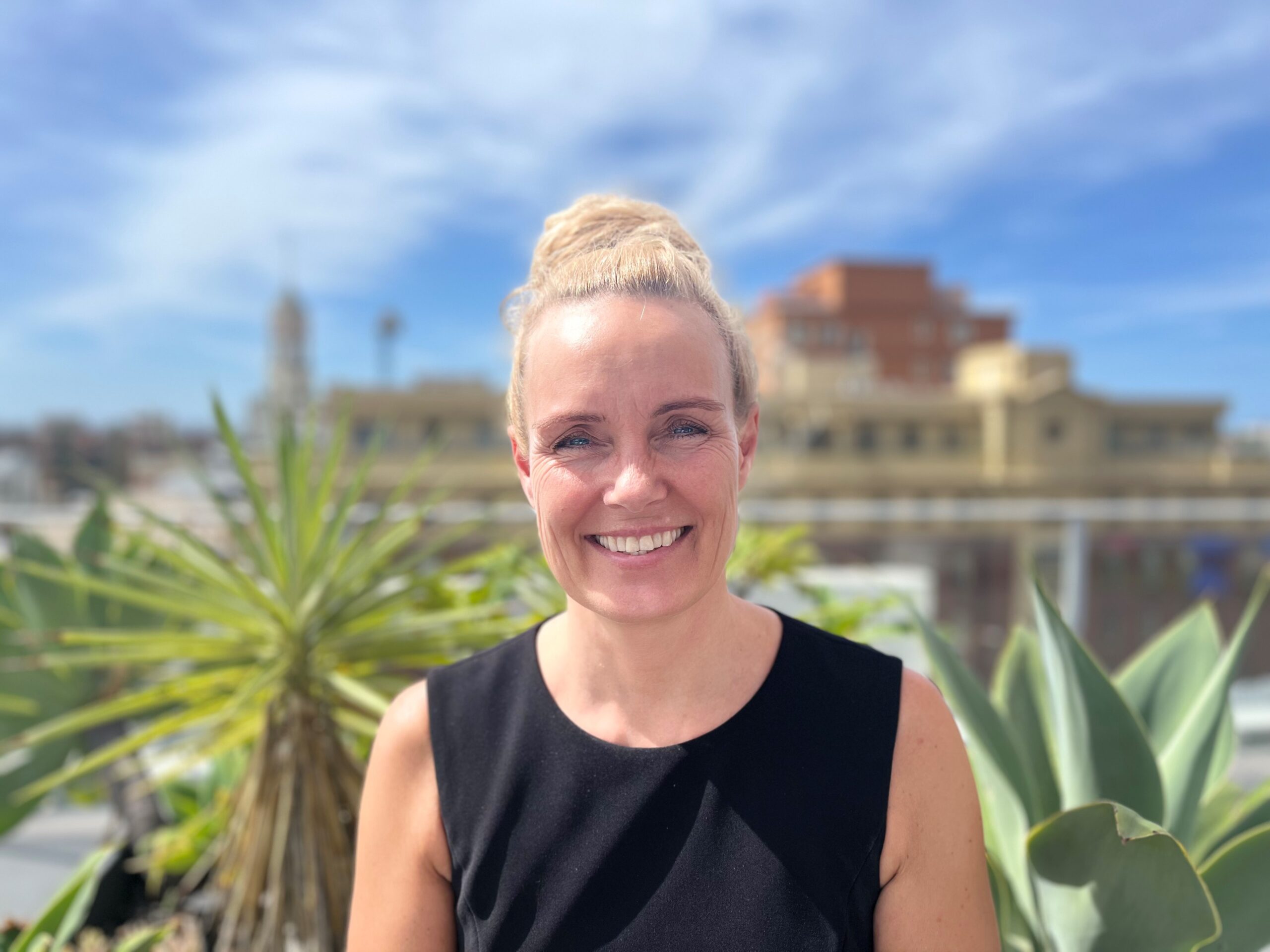A patient has reached out to express his thanks to one of our chemical pathologists, who became so concerned at his blood results, he called an ambulance in the middle of the night.
Craig Murphy lives on a rural property in the Upper Hunter Valley. He’d been feeling sick for a few weeks in early 2024 when he went for a blood test at NSW Health Pathology’s Murrurundi Hospital collection centre to find out what was going on.
His results came to the attention of the after-hours Chemical Pathologist Dr Richard Ruddell at our John Hunter Hospital laboratory in Newcastle.
The lab has a big rural catchment, supervising laboratories at Armidale, Glen Innes, Inverell, Tamworth, Port Macquarie, Kempsey, Taree, and Coffs Harbour hospitals.
“This can sometimes make contacting patients rather tricky,” Richard said.
“I think in this case, the Tamworth lab had trouble contacting this patient’s GP, so as the on-call Chemical Pathologist I was called to assess the severity and urgency of the biochemical abnormality.
“The blood results showed his potassium was worryingly high and his phone was switched off, so I had to pull out all the stops and send an ambulance to get him urgent care.”
Richard said the ambulance crew were “the real stars”, eventually managing to locate Craig’s rural property at around midnight with very little information to go on.
“I think they had to knock and ask at several nearby residences before they found him,” Richard said.
Craig Murphy called Richard back in the morning to thank him for checking on his welfare and Richard was able to persuade him to go to the hospital and get his potassium levels looked into.
“The pathologist took my phone call as he was having his coffee the next morning,” Craig said.
“What a kind and thoughtful person he is. I want to pass on my heartfelt appreciation for the amazing service he provided. He went above and beyond, and I think he probably saved my life.
“I am feeling much better now and have reorganised my medications which were causing the problem.”
Richard insists it’s all part of the job but was chuffed to hear that Craig was on the mend.
“Even though the lab is somewhat detached from the direct patient interactions, I think of all the residents of the Hunter, New England and Mid North Coast as my patients,” he explains.
“We do what it takes to get them the care they need even if that means calling them late at night or sending an ambulance to their home if it’s needed.”

